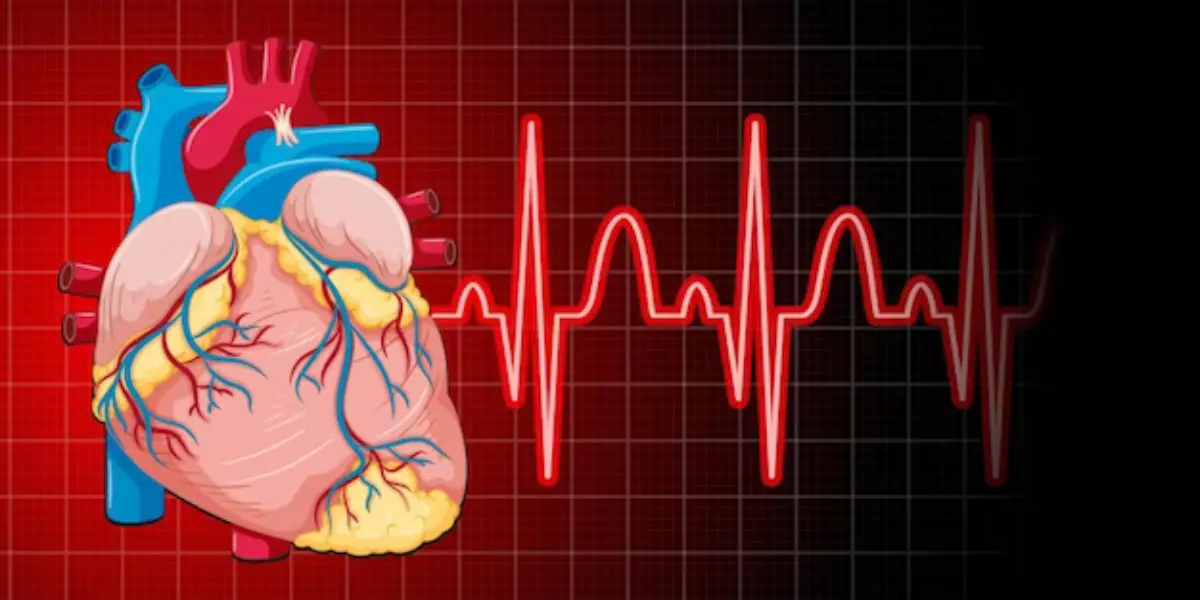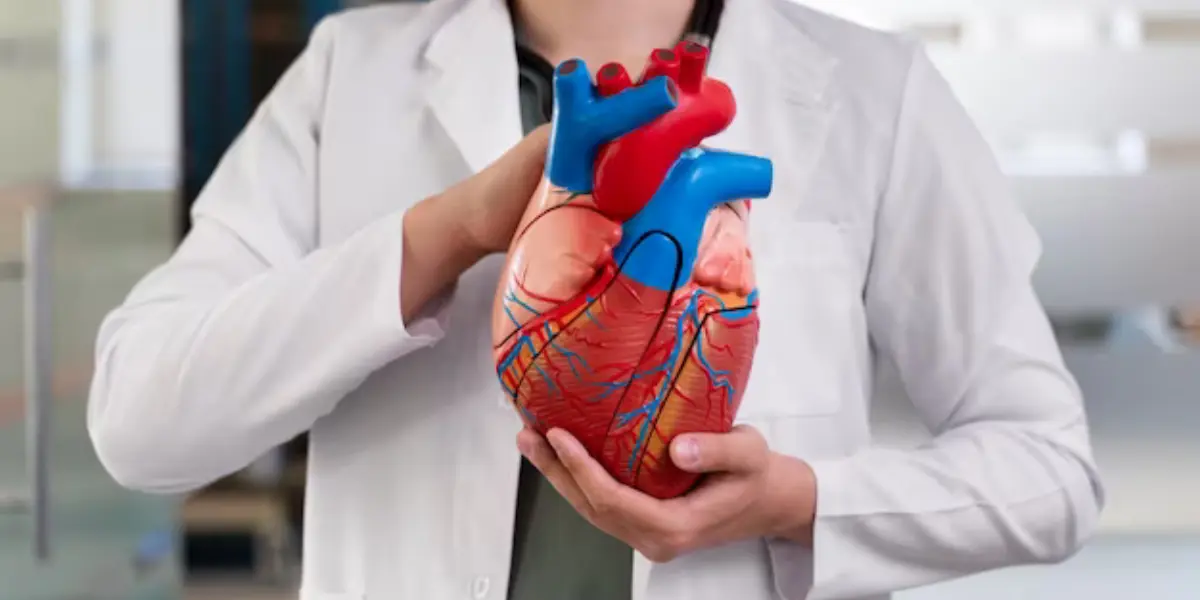Cardiac arrhythmia is a heart rhythm disorder, there are several types of varying severity. Though it is a common infection of the aged. However, it sometimes affects young people when it is congenital or when it is secondary to another pathology acquired during life. Some rhythm disorders are sometimes even benign affecting healthy people. Generally, this disorder results in an alteration in the frequency, regularity and or intensity of heart contractions. Usually, the activity of the heart is regulated by electrical signals: an anomaly in these electrical impulses leads to an arrhythmia.
How Common Is Cardiac Arrhythmia? Can You Live With A Heart Arrhythmia?
Cardiac arrhythmia is a common pathology due to the increase in life expectancy and the improvement of screening methods. The most common arrhythmia is atrial fibrillation, which affects approximately 1% in the general population and more than 10% of people over 80 years old. This disorder would increase cardiovascular risk. Bradycardia and tachycardia are also common conditions, they are sometimes benign and can strike young and healthy individuals. Severe bradycardia appears to be increasing in recent years.

What Are The Different Types Of Cardiac Arrhythmia
Tachycardia
This is detected in the event of an accelerated heart rate at rest (>100 beats/minute).Tachycardia is sometimes benign( for example, in stressed subjects). Tachycardia can however, hide a cardiac abnormalities originating from:
the atria ( atrial tachycardia) we then distinguish sinus tachycardia ( generally resulting from efforts, stress, or taking substance) from supraventricular tachycardia ( frequent in young subjects and most often linked to an abnormality congenital) Bouveret’s disease ( or paroxysmal supraventricular tachycardia) and Wolff-Parkinson White syndrome are the most common forms of supraventricular tachycardia.
Of the ventricles ( ventricular tachycardia) an abnormal acceleration in the rate of contraction of the ventricles can have serious consequences such as sudden death. Ventricular arrhythmia is often the result of pre-existing heart disease, electrolytes disturbances, taking certain medications, or a myocardial infarction. We must distinguish between QT syndrome or ventricular tachycardia itself
Bradycardia
This is characterized by a decrease in resting heart rate ( < 50 beats/minute) . It is sometimes physiological in athletes. However, it sometimes reflects cardiac abnormalities ( scarring, problems with the transmission of electrical activity between the ears and the ventricles, hypothyroidism, etc). Persistent bradycardia justifies the installation of a pacemaker
Atrial Fibrillation
It is the most common serious arrhythmia, most often affecting people over 60 years old. It results in a significant acceleration in the rate of contraction of the atria. Only certain beats managed to be transmitted to the ventricles which beat irregularly. When the tachycardia also affects the ventricles, we speak of TAC/FA. Complete tachycardia due to atrial fibrillation
What Causes Cardiac Arrhythmia
Cardiac arrhythmia can have many causes. In other cases, the Causes of cardiac arrhythmia can be the following:
- Normal aging
- Stress
- Abuse of tobacco, alcohol, coffee, or any other stimulants
- Cocaine use
- Dehydration
- Arteriosclerosis
- Atherosclerosis
- Taking certain medications
- Bronchopneumopathy, i.e Problem of the respiratory system
- Pulmonary embolism
- Coronary insufficiency leading to a lack of the oxygenation of the heart tissue
What Are The Symptoms Of The Cardiac Arrhythmia
The arrhythmia may not present any symptoms, or on the contrary, be identified by:
- Feeling of a strong, rapid heartbeat ( racing heart)
- A feeling of beating in the chest
- Chest pain (agina-like)
- Weakness or Fatigue
- A drop in blood pressure
- Dizziness
- An Irregular pulse
- Shortness of breath
- Discomfort with sudden sweating, and paleness which can lead to temporary loss of consciousness (syncope)
These symptoms can occur at rest or after even minimal effort.
How Is The Diagnosis Of Cardiac Arrhythmia Established
In the event of an arrhythmia, several tests can be performed, among them are:
The electrocardiogram or resting ECG ( recording of the electrical activity of the heart) is essential, even if the symptoms are not always observed during examination. Other examinations are carried out; the Holter’s ECG, that is to say an electrocardiogram carried out continuously over 24 hours ( the person takes with them a box connected to electrodes placed on the skin near the heart). The ECG electrocardiogram studies the cardiac reaction during exercise. It allows the doctor to observe heart rate, blood pressure, and possible heart problems. This particular procedure gives almost the best accurate heart examination result as well as proper diagnosis of all related heart complications.
What Are The Treatments For Cardiac Arrhythmia
Drug Treatment Against Arrhythmia
Treatment varies depending on the nature of the arrhythmia. This could be:
- Antiarrhythmic drugs such as beta blocker, amiodarone and other antiarrhythmics.
- Anticoagulants are sometimes prescribed to possibly prevent the formation of clots caused by the arrhythmia. This may be antivitamin K medication(AVK) or, more rarely, new medication ( dabigatran, rivaroxaban, apixaban) reserved for certain cases, antiplatelet agent sometime prescribed instead of anticoagulants
Electrical Treatment For Arrhythmia
In some cases, electrical treatment is necessary. It has different objective depending on the heart rhythm disorder, it could be:
An external electric shock (or cardio conversion) under general anesthesia to treat in particular tachycardia which does not heal under medical treatment.
The insertion of a pacemaker under general anesthesia. It is essential when the heart is too slow. These can be sentinel devices that turn on when needed and take over when the heart slows down too much, or devices that constantly regulate the heart.
Management of cardiac arrhythmia generally requires health and dietary measures to be implemented. This may include adopting a healthy diet, regular physical activity, and limiting the consumption of tobacco, alcohol and stimulants. Sometimes, the use of medication or special techniques is necessary. After being diagnosed with heart disease, it is normal to feel worry or fear. Find emotional comfort from his parents, friend, doctor, mental health professional or support groups.
Also Read:- How Can I Improve My Heart Health Naturally? Keep Your Heart Stronger

End Result
Arrhythmia is generally not directly dangerous, on the other hand, arrhythmia which arises in the ventricles ( ventricular arrhythmia) if left untreated, these are often acute emergencies that can lead to cardiac-circulatory arrest. The beauty of the whole process is to stay healthy, eat a balanced diet, do regular and moderate exercises and keep a date with your medical check-up.
References:
- Desai DS, Hajouli S. Arrhythmias (https://www.ncbi.nlm.nih.gov/books/NBK558923/). [Updated 2022 Jun 11]. In: StatPearls [Internet]. Treasure Island (FL): StatPearls Publishing; 2022 Jan-. Accessed 3/20/2023.
- National Heart, Lung, and Blood Institute. What Is An Arrhythmia? (https://www.nhlbi.nih.gov/health/arrhythmias) Accessed 3/20/2023.
- About arrhythmia. (2016).
https://www.heart.org/en/health-topics/arrhythmia/about-arrhythmia